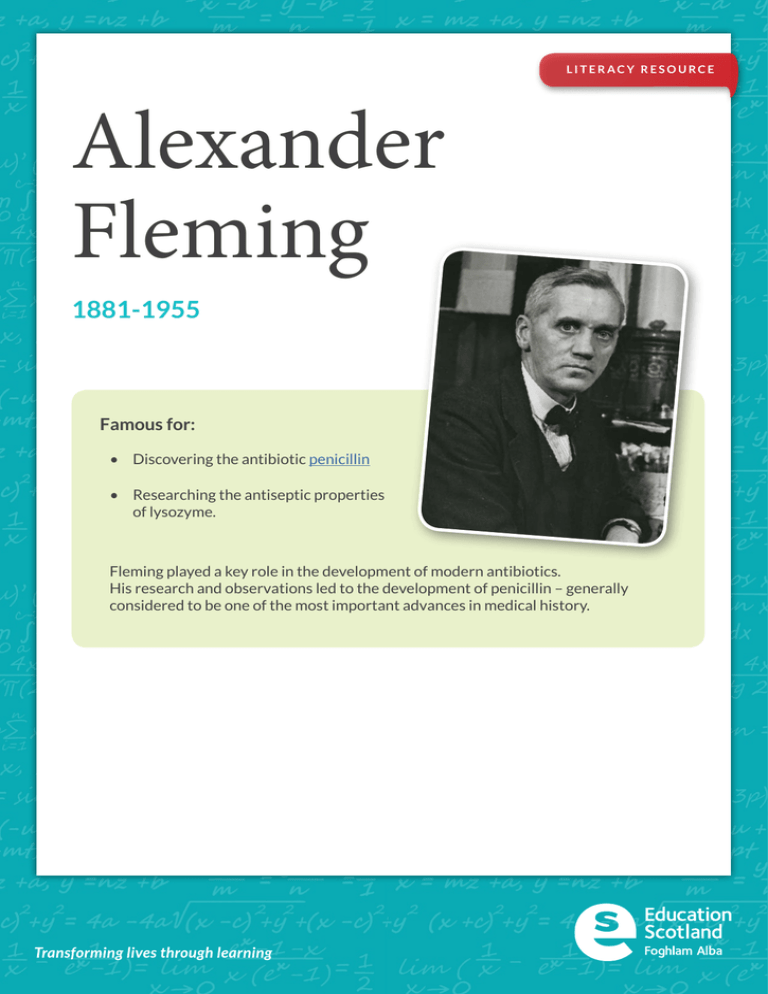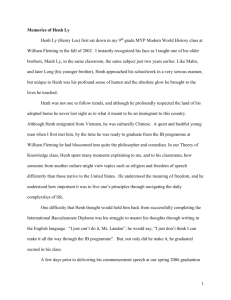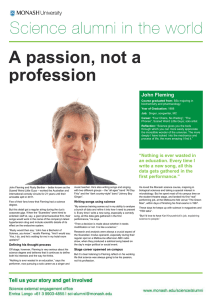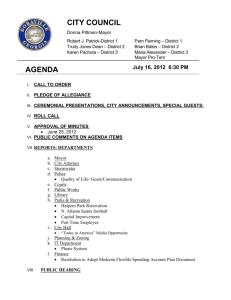Alexander Fleming 1881-1955 Famous for:
advertisement

LITERACY RESOURCE Alexander Fleming 1881-1955 Famous for: • Discovering the antibiotic penicillin • Researching the antiseptic properties of lysozyme. Fleming played a key role in the development of modern antibiotics. His research and observations led to the development of penicillin – generally considered to be one of the most important advances in medical history. Alexander Fleming (1881-1955) Humble beginnings Fleming was born on 6 August 1881 at Lochfield Farm, near Darvel in Ayrshire. Alec, as he was known, was the second youngest of seven siblings. He enjoyed a poor but happy childhood with a love of the outdoors. Although his father died when he was seven, his mother continued to run the farm. Alec attended primary school at Loudon Moor and Darvel before going on to Kilmarnock Academy. He enjoyed his school days. This is despite a playground accident that left him looking like a boxer for the rest of his life! Medical degree in London When Fleming was 13, he moved to London to live with his brother who was a doctor. He took a job with a shipping office as a clerk, which he found very dull. When he was 20 years old, Fleming inherited a small sum of money from an uncle. He used this to follow his brother into the medical profession. Fleming studied at St Mary’s Medical School and was closely associated with this institution for the rest of his life. Naturally very bright and a quick learner, he completed his medical degree and won almost every prize and medal available. Almroth Wright’s influence Head of the Inoculation Department at St Mary’s was Almroth Wright. Wright, one of Fleming’s mentors, asked him to stay on at the hospital after completing his studies. A pioneering figure in medical research, Wright believed that vaccines and immunisation held the key to the treatment of infectious diseases. He had a strong influence on Fleming. Treating the war wounded During the First World War, Fleming and others were based in Boulogne. They were involved in the treatment of the wounded from battlefields. Fleming would have seen men with horrific wounds already badly infected. Infected wounds had to be amputated because antiseptics didn’t work. Existing medicines also failed to stop the flu epidemic of 1918 claiming many lives. 1. Discovery of penicillin After the war, Fleming discovered and proved the natural antiseptic power of the enzyme he called ‘lysozyme’. Six years later, he identified a germ-killing mould – one of a group known as ‘Penicillium’. It was some 10 years later when Fleming, along with Howard Florey and Ernst Chain, isolated penicillin. They developed it as an antibiotic just before the Second World War. The discovery of antibiotics became a great milestone in the history of medicine. Today penicillin is used to treat all kinds of bacterial infections. Awards and honours In 1944 Florey and Fleming were knighted. Fleming, Florey and Chain were awarded the Nobel prize for medicine in 1945, in acknowledgement of their work on penicillin. Fleming became a celebrity, giving lectures all over the world and receiving honours. However he always acknowledged that it was Florey and Chain who had turned penicillin into a practical drug. Careful not to exaggerate what he had done, Fleming stated: ‘Nature makes penicillin; I just found it’. Later years Fleming’s first wife Sarah died in 1949. They had been married for 34 years and had one son, Robert. In 1953, Fleming married Greek research assistant Amalia Voureka Coutsouris. They lived together happily until Fleming died suddenly of a heart attack aged 74. He was buried in London’s St Paul’s Cathedral in 1955. Did you know? Alexander Fleming grew different coloured bacteria in Petri dishes to make designs. He then used these to create ‘germ paintings’. The paintings were invisible while he painted, but made bright colours once the cultures grew. Taken from the National Library of Scotland Science Hall of Fame http://digital.nls.uk/scientists/biographies/index.html 2. Education Scotland Denholm House Almondvale Business Park Almondvale Way Livingston EH54 6GA T +44 (0)141 282 5000 E enquiries@educationscotland.gov.uk www.educationscotland.gov.uk





